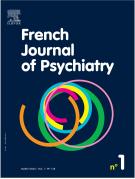Identifying a predictive neuroanatomical signature of bipolar disorders reliable across 13 international sites - 29/05/20
 , P. Favre 1, 2, 4, A. Grigis 1, C. Piguet 1, 5, M.L. Phillips 6, C. McDonald 7, M. Wessa 8, P. Brambilla 9, L.T. Eyler 10, M. Polosan 11, M. Leboyer 2, 3, 4, E. Duchesnay 1, J. Houenou 1, 2, 3, 4
, P. Favre 1, 2, 4, A. Grigis 1, C. Piguet 1, 5, M.L. Phillips 6, C. McDonald 7, M. Wessa 8, P. Brambilla 9, L.T. Eyler 10, M. Polosan 11, M. Leboyer 2, 3, 4, E. Duchesnay 1, J. Houenou 1, 2, 3, 4Résumé |
Although bipolar disorder (BD) is a relatively frequent, severe and disabling disease, we still lack reliable diagnostic tools. The existence of anatomo-functional brain abnormalities in BD is now well established by MRI studies [1]. Machine learning allows individual level analysis and could potentially lead to diagnostic applications [2]. This is the first international multi-site ML study on BD aggregating raw MRI data. We trained two support vector classifier (SVC), with linear kernel and with radial basis functions kernel, using as input features T1 MRI regions of interest volumes from 419 patients BD and 551 healthy controls (HC) from 13 international sites. We assessed those classifiers using two strategies, 5 fold cross validation and leave-one-site-out. Both methods reached similar results, respectively AUC=61.70%/61.65%, sensitivity=57.52%/60.14% and specificity=65.88%/63.16%. The regions that contributed to identification of BD participants were highly correlated between both analyses (r2=0.9479). These results point to robust, generalizable models. Classification was affected by antipsychotics treatment, but this does not seem to drive classification performances of BD vs HC. Using voxel-based morphometry features may increase the classifiers performances [3]. To reach clinical meaningful performance (i.e. 80%), the continuation of collaborative work to get larger multicentric databases is essential and must be extended to multimodal data [4].
Le texte complet de cet article est disponible en PDF.Keywords : Bipolar disorders, Magnetic resonance imaging, Machine learning, Precision medicine, Computer assisted diagnosis
Plan
Vol 1 - N° S2
P. S110-S111 - décembre 2019 Retour au numéroBienvenue sur EM-consulte, la référence des professionnels de santé.
L’accès au texte intégral de cet article nécessite un abonnement.
Déjà abonné à cette revue ?

